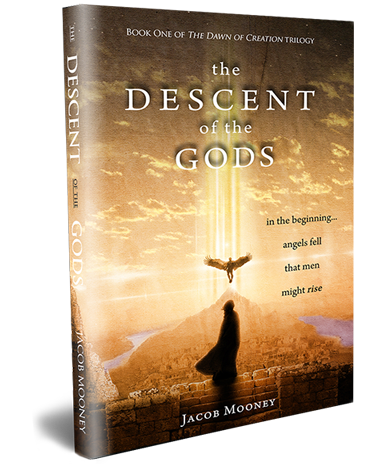One book that has always fascinated me is the Book of Enoch.
This book is an ancient Jewish religious work believed to have been written sometime during the Second Temple period, which was from the 5th century BCE to the 1st century CE.
What is the Book of Enoch?
The Book of Enoch is an apocryphal (not considered part of the canon of the Hebrew or Christian Bibles with few exceptions) and a pseudepigraphical text, which means it is among many books written around the time of Christ ascribed to well-known prophets even though they were not written by them.
It is, however, considered a sacred text by the Ethiopian Orthodox Church, which includes it in their biblical canon, and is one of the reasons the book survived intact to modern times.
The book is attributed to Enoch, the 7th descendant of Adam through Seth, and the great-grandfather of Noah. According to the book, Enoch was a prophet who was taken up to heaven and given a tour of the cosmos by angels. The book contains his visions and teachings, including a description of the fallen angels and their offspring, the Nephilim.
What are the contents of the Book of Enoch?
The Book of Enoch is divided into five main sections, each containing different teachings and visions.
- The first section describes Enoch’s journey through the heavens and his encounter with the angels.
- The second section describes the fallen angels and their offspring, the Nephilim.
- The third section contains teachings about astronomy, including the movements of the stars and planets.
- The fourth section contains visions of the end of the world, including the judgment of the wicked and the resurrection of the dead.
- The final section contains teachings on the nature of the righteous and the wicked and the rewards and punishments they will receive in the afterlife.
Where has the Book of Enoch been discovered?
The Book of Enoch has been discovered in several locations worldwide, including Ethiopia, Egypt, and the Dead Sea region.
The book was referenced by the Bible and many early church fathers for the first few centuries after Christ (favourably for the most part), but the book fell out of favor with many Catholic and Jewish leaders and copies were no longer available during the midlevel period, with some like Sir Walter Raleigh in his History of the World (chapter 5 section 6) commenting extensively on early church references to the book, but making no indication that he had access to it.
The most significant discovery was made in Ethiopia, where a complete Ge’ez version of the book was found in the 18th century by explorer James Bruce while he was attempting to find the source of the Nile river. This version is still used by the Ethiopian Orthodox Church today, and the three copies he brought back to Europe now reside at the French National Library, Oxford, and the Bodleian library.
The general consensus at the time, however, was that the Book of Enoch had been written AFTER Christ, due to the amount of content in the book that seemed so blatantly referencing Christ.
However, this concept had to be discarded when fragments of the book were found among the Dead Sea Scrolls in the 20th century, dating to 200 – 300 years BC. Which meant the book’s clear messages about the messiah and the ‘Elect One’ could no longer be dismissed and had to be revisited.
What impact did the Book of Enoch have on Christianity?
The Book of Enoch has had a significant impact on Christianity, especially in the early centuries. And now that it has been widely accepted as being written before Christ, and the fact that Jude quotes it and Peter alludes to it twice, it’s clear that the book had a big impact on Israel at the time of Christ.
It was widely read and respected by early Christian writers, and heavily influenced the views of Irenaeus, Justin Martyr, and Anthenagoras on the interpretation of Genesis 6:1-4, just to name a few. Only Tertullian expressly made a claim that it was inspired like other scriptures.
Even so, many early writers don’t mention it at all in places you’d expect them to (Philo of Alexandria, Josephus), indicating that it wasn’t universally considered up to standard.
So like many other pseudepigraphical texts the Book of Enoch was excluded from the Jewish and Christian canons, and doesn’t really ever appear to be a contender in discussions by church fathers on the subject. Read this excellent research paper on the canonicity of the Book of Enoch for more.
Despite this, the Book of Enoch has continued to influence Christian thought and theology.
It is believed to have influenced the development of the concept of angels and demons and the understanding of the afterlife. It has also been used by some Christian groups as a source of prophecy and eschatology.
Does the Book of Enoch have value for Christians today?
The value of the Book of Enoch for Christians today is a matter of debate. Some Christians believe that the book is a valuable source of wisdom and knowledge, while others reject it as non-canonical and potentially heretical.
Those who believe in the value of the book often cite its teachings on angels, demons, and the afterlife as relevant to modern Christian thought.
The book’s descriptions of the Nephilim have also been used to support the angelic identity of the ‘sons of God’ in Genesis 6:1-4.




